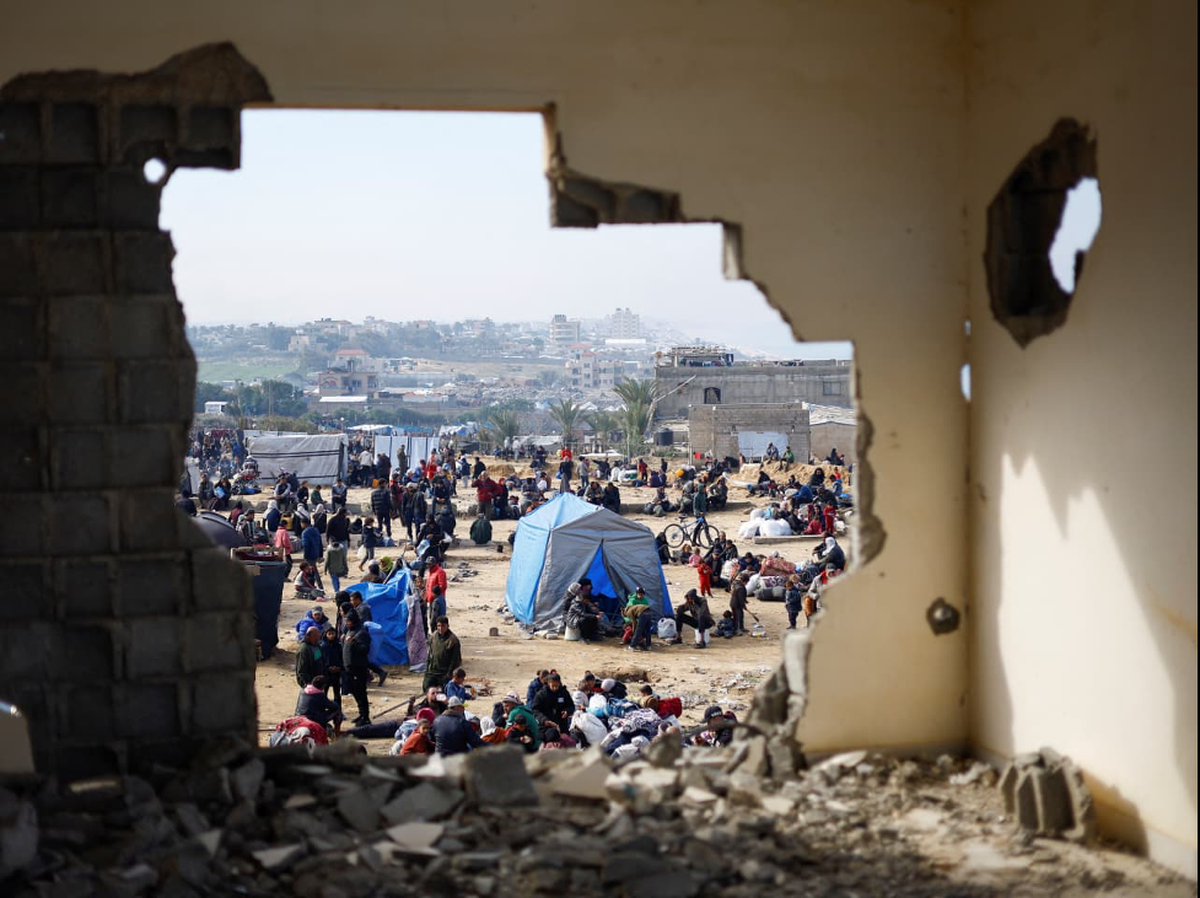Alwaght- The Trump's foreign policy regarding global issues has always smelled commercial and colonialistic. This personal profiteering and transactional approach has been evident in dealing with such issues as Gulf of Mexico, Panama Canal, and Greenland. Rather than dealing with these cases from historical, humanitarian, and legal aspects, Trump looks at them as economic and transactional opportunities.
For example, in 2019, he proposed buying Greenland from Denmark, presenting it as a trade opportunity for the US. He also criticized the Panama Canal, calling it a “bad deal” for his country. Even in policies related to the Gulf of Mexico and border issues, Trump’s approach was based more on controlling resources and economic interests.
The international response to these colonial and aggressive policies was extremely negative. The international community condemned these stances as a clear violation of international law and regulations. This commercial and colonial view of other lands and peoples is also seen in Trump's policies towards Palestine. His proposals to expel Palestinians from Gaza and relocate them to other countries, such as the Sinai Peninsula in Egypt, were similar to his colonial approaches on other issues and led to strong international reactions.
This analogy shows that Trump not only in political and geographical issues but also in the Palestinian crisis seeks to settle the challenges transactionally and off the legal and humanitarian framework; as if these lands are just properties that can be bargained, not homes with history and identity of their people.
This commercial and imperialistic vision of geography that always puts the rights of people on the second grade can be obviously seen in Trump's policies.
This kind of view, which sees Palestine and its people as a negotiable issue, makes Palestinians more distrustful of diplomatic processes than ever before. By adopting biased and transactional policies, Trump and similar movements are effectively conveying the message that negotiations will end in favor of stronger powers, not based on justice and fairness.
Impacts of such approach on the Palestinian view of negotiations
The policies of Trump and similar politicians have left substantial impacts on the Palestinians' view of the negotiations for a settlement of the decades-long dispute.
Distrust in political processes
When the US and Israel unilaterally advance such actions as relocation of embassy from Tel Aviv to Al-Quds (Jerusalem) or eliminate return of displaced Palestinians from the agenda of talks, the Palestinians feel that diplomacy can no longer an option.
Increase in public support to new intifadas (revolts) and leaning to armed resistance
Palestinian groups such as Hamas and Islamic Jihad use this atmosphere to reinforce their argument that only resistance and operations like Al-Aqsa Storm can bring about real change, not pro-compromise negotiations.
In fact, when even countries that earlier advocated two-state solution are now silent or aligning with the Israeli policies, the younger Palestinian generations lean to more radical solutions, something raising the possibility of repeat of October 7 operation or start of new intifada.
As a result, the transactional and bullying policies of Trump neutralize the capability of regional and international actors' argumentative power to persuade the Palestinian public opinion to forsake armed struggle and trust foreign actors to test diplomatic solutions.
In particular, the historical experience of the Palestinians in the fruitlessness of negotiations, and in contrast to that, the process of developments after the Operation Al-Aqsa Storm, which saw the release of a large number of Palestinian prisoners from the regime's prisons and the regime's inability to displace the Palestinian people through military operations for the first time in the history of developments in this region, has prepared the ground for the spread of the influence of the resistance discourse in the West Bank.
Sarcastic response to Trump's proposal: Why not Greenland?
In reaction to Trump's proposal to expel the Palestinians from Gaza, Iran's Foreign Minister Abbas Araghchi proposed relocation of Israelis to Greenland. This proposal was a diplomatic sarcasm and political tactic, carrying several messages:
Disclosing Western colonialist approach
As Trump imagines that Greenland can be bought, Iran uses this logic and proposes that the Israelis can migrate to Greenland and allow Palestine to return to its true owners, the Palestinians.
Discrediting Trump's proposal
This comparison showed that if the proposal to transfer the Israelis to Greenland is illogical from the point of view of the Americans and Europeans, the expulsion of the Palestinians is even more baseless and unacceptable; because the Palestinians are native to this land and have ancestral roots in the geography of the region, but the Israeli regime is considered a fake and fraudulent entity, the vast majority of whose population are European, African, and Asian immigrants who even consider their original homeland to be somewhere else and have gone to the occupied Palestinian territories solely to benefit from economic privileges and the promise of prosperity and wealth.
Condemning Israeli policy of population relocation
Itself formed on migration of the Jews from around the world to the Palestinian territories, Israel is now pushing the Palestinians out of their land.
Although the Iranian response to Trump's relocation plan was mostly a statement of position and political sarcasm, it showed how illogical and unilateral Trump's transactional policies are.
Fate of Iran's proposal for referendum on Palestine
For years, Iran proposed that the solution of the Palestinian case is a general referendum of original Palestinians including the Muslims, Christians, and Jews. This proposal remains part of the official policy of Tehran. But the growing Western support to Israeli apartheid policies against the Palestinians and violation of all international laws and conventions by Israeli leaders in recent Gaza war along with recent bullying stances of Trump all make a diplomatic solution impossible.
Therefore, although the Islamic Republic of Iran does not withdraw its proposal, given the field developments, it will be the battleground and field developments, not diplomacy, that will determine the future of Palestine. Actually, if a new intifada takes shape or a larger-scale war erupts, political and diplomatic options will be pushed to the sidelines.



























